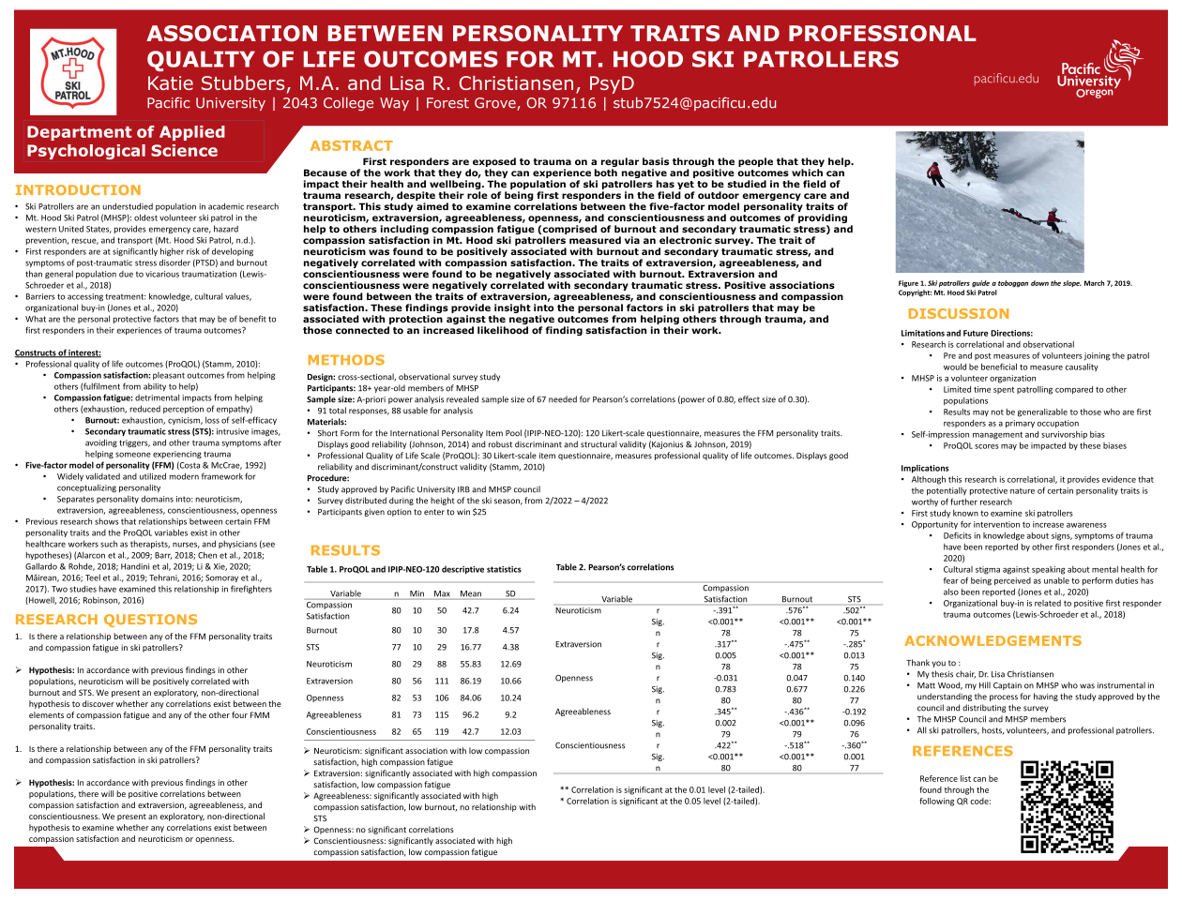Poster #22
Personality Traits and Impact on Work Experiences for Mt. Hood Ski Patrollers
By: Katie Stubbers, M.A.
Abstract:
First responders are exposed to trauma on a regular basis through the people that they help. Because of the work that they do, they can experience both negative and positive outcomes which can impact their health and wellbeing. The population of ski patrollers has yet to be studied in the field of trauma research, despite their role of being first responders in the field of outdoor emergency care and transport. Protective and risk factors for experiencing both negative and positive outcomes from first responder work have yet to be studied in this population. This study aimed to examine correlations between the five-factor model personality traits of neuroticism, extraversion, agreeableness, openness, and conscientiousness and outcomes of providing help to others including compassion fatigue (broken down into burnout and secondary traumatic stress) and compassion satisfaction in Mt. Hood ski patrollers measured via an electronic survey. The trait of neuroticism was found to be positively associated with burnout and secondary traumatic stress, and negatively correlated with compassion satisfaction. The traits of extraversion, agreeableness, and conscientiousness were found to be negatively associated with burnout. Extraversion and conscientiousness were negatively correlated with secondary traumatic stress. Positive associations were found between the traits of extraversion, agreeableness, and conscientiousness and compassion satisfaction. These findings provide insight into the personal factors in ski patrollers that may be associated with protection against the negative outcomes from helping others through trauma, and those connected to an increased likelihood of finding satisfaction in the work.
katie stubbers
I am a student of Applied Psychological Science at Pacific University (PU) earning my master’s degree. I have been a volunteer as a first responder with the Mt. Hood Ski Patrol for two years, and have witnessed and heard firsthand accounts of the outcomes of vicarious traumatization experienced by patrollers and other first responders. For my thesis project at PU, I surveyed my fellow volunteer ski patrollers to gather data on the prevalence of both positive and negative outcomes from the work that we do, as well as personal factors that may contribute to increased risk or protection from those outcomes. During my time at PU, I also completed a practicum internship at the Domestic Violence Resource Center in Beaverton, Oregon where I provided trauma-informed individual and group psychotherapy to survivors of domestic violence.

